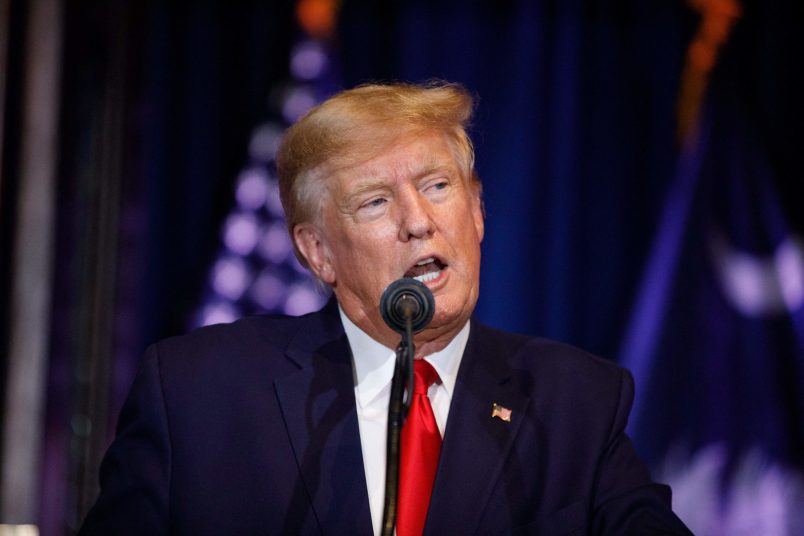Over the past year, a special grand jury has been investigating if former President Donald Trump and his allies tried to unlawfully interfere in the 2020 election results in Georgia. For the first time, one of the jury members at the heart of the matter is offering some behind-the-scenes details of the months-long inquiry.
In interviews published by the Associated Press and the New York Times Tuesday, foreperson Emily Kohrs, a 30-year-old Fulton County resident, gave fresh insights into the investigation, revealing that the special grand jury recommended indictments of multiple people on a range of charges in its final report.
“It is not a short list,” Kohrs told the New York Times, adding that the jury appended eight pages of legal code that it “cited at various points in the report.”
Fulton County Superior Court Judge Robert McBurney ruled last Monday that three parts of the jury’s final report — the introduction, the conclusion and a section in which jurors expressed concern that some witnesses may have lied under oath — should be made public.
“The compelling public interest in these proceedings and the unquestionable value and importance of transparency require their release,” the judge said last week.
But most of the final report is still under seal.
And following advice from JudgeMcBurney, Kohrs and jurors are not allowed to disclose much of the details of the investigation or the report itself.
So Kohrs declined to answer who exactly was recommended for indictment. But when asked if Trump is one of those names, she revealed the names on the list won’t come as a surprise.
“You’re not going to be shocked. It’s not rocket science,” she told the New York Times. “You won’t be too surprised.”
“I will tell you that if the judge releases the recommendations, it is not going to be some giant plot twist,” she added. “You probably have a fair idea of what may be in there. I’m trying very hard to say that delicately.”
The special grand jury met for nearly seven months in a courthouse in Atlanta last year and heard testimony from 70 witnesses. Trump was not among those who testified but many key Trump allies, including Sen. Lindsey Graham (R-SC) and former Trump attorney Rudy Giuliani did.
Trump’s attorneys have reportedly said he was never asked to testify. But according to Kohrs, the grand jury did want to hear from the former president; they just agreed he wouldn’t offer meaningful testimony.
“Trump was not a battle we picked to fight,” Kohrs told the AP.
In her interview with the AP, Kohrs also gave personal insights into the individuals who did testify. For example, the biggest name involved in the investigation was Georgia Secretary of State Brad Raffensperger. Trump infamously called Raffensperger on Jan. 2, 2021 and asked him to recalculate the results and “find” 11,780 votes for him, the number of votes he needed to overturn his loss in Georgia.
Raffensperger was “a really geeky kind of funny,” according to the forewoman.
Unlike him, Gov. Brian Kemp — who did not appear in front of the jury until after his reelection in the November midterms — seemed unhappy to be there, Kohrs told AP.
Kohrs also described Giuliani as funny. The former New York mayor invoked privilege to avoid answering questions but did “genuinely seem to consider” if he should answer the questions before declining to answer, she told the AP.
And Kohrs was surprised that Graham — who tried to avoid testifying by taking his fight all the way to the U.S. Supreme Court — politely answered questions and even joked with jurors.
Some witnesses came before the grand jury with immunity deals already in place to encourage them to answer the jury’s questions, Kohrs told the AP. At least one witness who resisted answering questions became much more cooperative when prosecutors offered him immunity in front of the jurors, she said.



